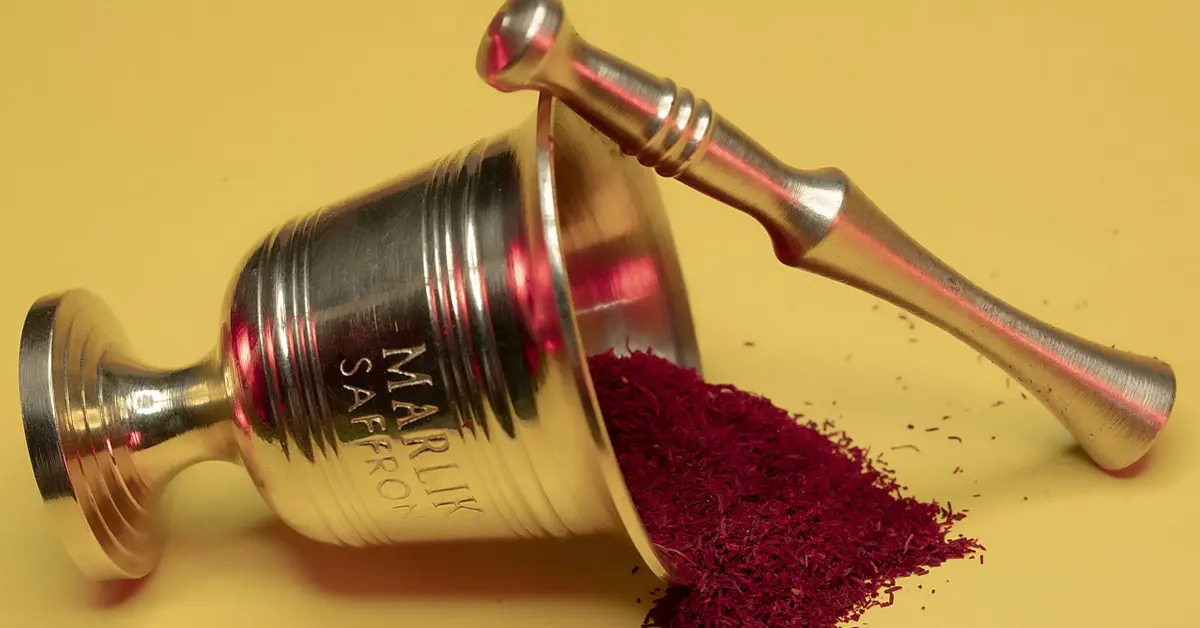Saffron's Golden Touch: A Natural Breakthrough in ADHD Treatment

ADHD is a prevalent neurodevelopmental disorder affecting children, adolescents, and adults worldwide. With symptoms ranging from hyperactivity to inattention and impulsivity, the search for effective treatments is ongoing. While traditional medications like methylphenidate have proven effective, there's a growing interest in alternative treatments.
The Role of Saffron in Mental Health #
Saffron, a spice extracted from the saffron crocus (crocus sativus), has been traditionally used not just as a culinary ingredient but also as a remedy for various ailments. Its anti-inflammatory and antioxidant properties have made it a natural choice for treating chronic diseases like rheumatoid arthritis, Alzheimer’s, and even certain cancers.
Moreover, saffron's impact on the central nervous system is noteworthy. It possesses psychoactive properties and influences neurotransmitters like dopamine, serotonin, and noradrenaline, which are crucial in ADHD's neurochemical makeup.
The Study: Saffron vs. Methylphenidate #
The study in focus aimed to compare the efficacy of a specific saffron extract, Saffr’activ®, with the commonly prescribed ADHD medication, methylphenidate. Conducted at the Child and Adolescent Mental Health Services at Puerta de Hierro University Hospital in Spain, this non-randomized study provided valuable insights into saffron's potential as an ADHD treatment.
Key Findings #
The results were promising. Saffron's efficacy was found to be comparable to that of methylphenidate. Interestingly, while saffron showed more effectiveness in treating hyperactivity symptoms, methylphenidate was more potent for inattention symptoms.
The Importance of Objective Measures #
One of the standout aspects of this study was its use of objective measures. Previous research on saffron's efficacy in ADHD treatment often relied on pen-and-paper tests, which might not capture the full spectrum of ADHD symptoms. This study's approach, incorporating both objective measures and a comprehensive battery of psychometric scales, offers a more holistic view of treatment outcomes.
Implications for ADHD Treatment #
The findings from this study underscore saffron's potential as a powerful therapy for ADHD. Not only does it address core ADHD symptoms, but given saffron's known benefits in improving sleep quality, it could also offer solutions for the sleep disturbances often associated with ADHD.
Holistic Approaches to Managing ADHD #
While the potential of saffron as an alternative treatment is promising, managing ADHD, especially in adults, often requires a multifaceted approach. Beyond medications and dietary interventions, lifestyle adjustments play a pivotal role in addressing the challenges posed by ADHD.
For many adults with ADHD, organization and time management are significant hurdles. Traditional methods like to-do lists or standard planners might not cater to the unique needs of someone with ADHD. This is where specialized tools come into play. For instance, an ADHD planner for adults can be a game-changer. Designed with the specific challenges of ADHD in mind, such planners offer structures and strategies that align with the ADHD brain, helping individuals stay on track, prioritize tasks, and manage their time more effectively.
By integrating alternative treatments like saffron with holistic tools and strategies, individuals with ADHD can navigate their daily challenges more efficiently and lead fulfilling lives.
Conclusion #
The exploration of saffron as a treatment for ADHD is still in its early stages, but studies like this pave the way for more holistic and alternative treatment approaches. As research continues, saffron might soon find its place alongside traditional ADHD medications, offering hope and a broader range of treatment options for those affected by the disorder.
This article provides a general overview based on the provided content from the study. For a comprehensive understanding, it's essential to refer to the original study: Effectivity of Saffron Extract on Treatment for Children and Adolescents with ADHD: A Clinical Effectivity Study.